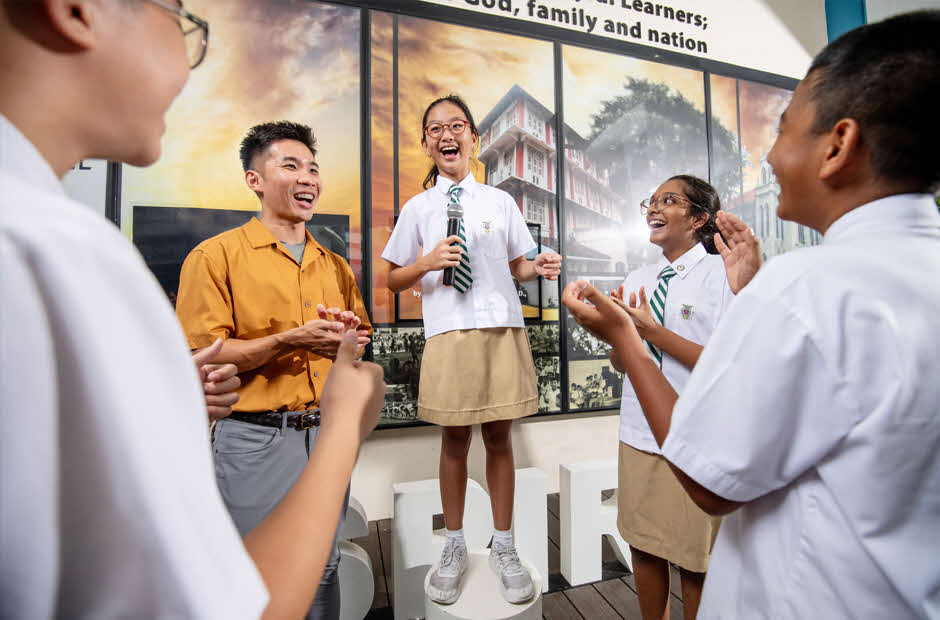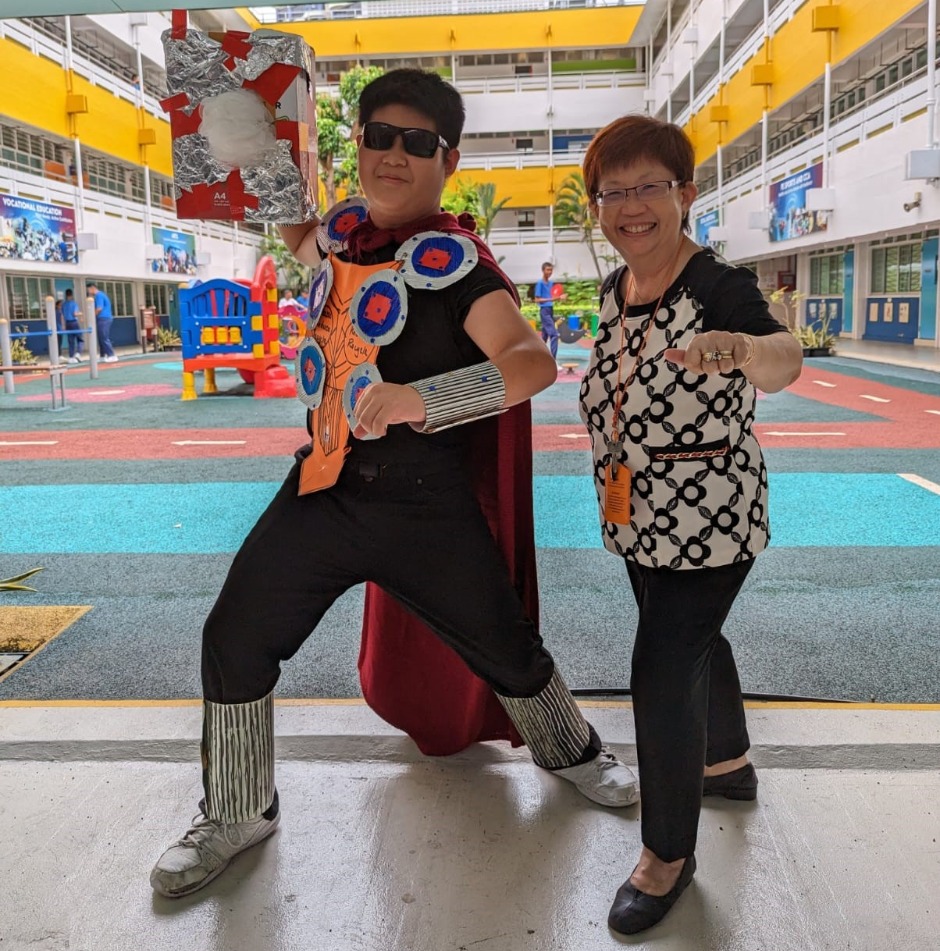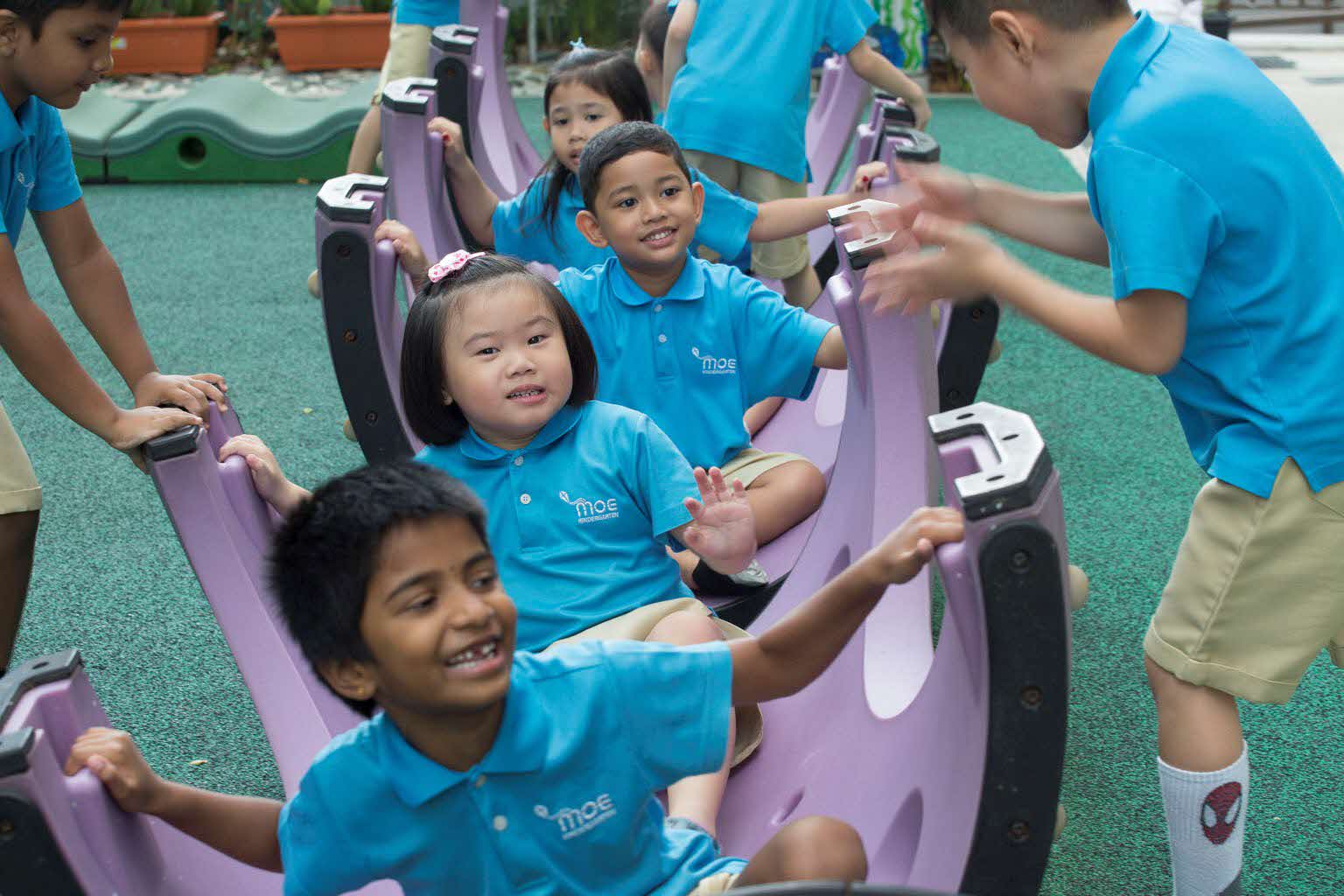Koh Kar Loong Kenneth, Catholic High School, Outstanding Youth in Education Award 2021 Recipient
“What do you want to be remembered for?”
That was the question I posed to my students last year when the pandemic broke out in Singapore.
As a History teacher, the experience of the pandemic, and its wide-ranging impact on people all around the world struck me as no less momentous than the many historical events we learn about in our textbooks.
When the decision to move to full Home-Based Learning was announced last year, it suddenly occurred to me – what better time to help students relate to the discipline of History?
A Piece of History
My students were not unlike many others who had the initial impression that History was a dull discipline, concerned only with dry facts and dates. I saw the pandemic as a chance to help students see themselves not just as mere passive recipients of historical knowledge but active participants, endowed with a role and voice in weaving the narrative.
For a start, I contacted the National Museum of Singapore (NMS), who were happy to support us in our school’s ‘Documenting COVID-19 Social Memories Project’. A curator joined us in a virtual History lesson and shared about the museum’s work, explaining how artefacts, whether ceremonial (like the Mace of Singapore) or mundane (cue the humble night-soil bucket), can ‘speak’ to us about the experiences of people in the past. Thereafter, students each selected their own artefact and wrote stories that were reflective of their pandemic experiences.
Some chose a face mask as the symbol for the pandemic, while others contributed photographs and artworks. My personal favourite was from a student who contributed a ‘button presser’ – a handheld plastic contraption used to push the buttons in lifts and at traffic junctions so that a person would not pick up any viruses on one’s hands! It was a fitting artefact revealing people’s preoccupation with hygiene.
Seeing their artefacts displayed at the NMS exhibition ‘Picturing the Pandemic: A Visual Record of COVID-19 in Singapore’ in February this year was a moment of realisation for the students – they were not just studying History as a subject but also directly contributing to it.
History is not just what we read, but what we do
The project spun off into many other conversations as we reflected on our present circumstances and imagined the future. As students uncovered the role they played in the larger historical narrative, I also prompted them to think about their actions today. From asking “What do you remember?”, I reframed the question to “What do you want to be remembered for?”
This question spurred students and staff into action. The Citizenship Committee teachers and I brought the students together to carry out various #SGUnited initiatives. The students penned words of encouragement for medical workers in the hospitals, and also donated masks to various religious organisations and Voluntary Welfare Organisations (VWOs) to help those in need. They may not have been able to ‘change history’ so to speak, but they were contributing in their own way, to shape the story of our nation’s fight against COVID-19.
This lesson, about making a positive impact on the community, does not merely apply to the pandemic. It is a mission I care deeply about and strive to reinforce through another project, the Cultural Intelligence Work Attachments, which our school offers to Secondary 3 students for them to work at selected VWOs and learn more about the way of life of other communities.
The sight of our boys busily chopping vegetables and serving food to migrant workers in Krishna’s Kitchen as part of their Work Attachment (before COVID-19) is a memory I cherish. More than the practical skills they picked up in the kitchen, they learnt to respect and make friends with people beyond their own community. At a time in Singapore’s history when conversations about race and nationality are more heated than ever, their authentic and warm interactions with the migrant workers matter more than ever, too.
After all, every act of kindness counts and will be remembered.
It’s not in the textbook
In my school, research is an integral part of our Year 3 and 4 curricula, and I wanted the students to have autonomy in determining the topics they investigated. Students could take the concepts we learn in class – such as militarism, the Cold War, or nationalism, to name a few – and explore how they would play out in a context or event of their choice. To me, allowing for options promoted a sense of ownership, which saw them persevere through the research process and develop their own interpretations of historical events.
Some teachers were naturally a little apprehensive at first, but once they saw the products that the initial groups produced, they were convinced that our students were capable of learning independently outside of the textbook. Since last year, we have implemented this research project for the whole level.
Beyond the research process, I also find it meaningful for students to explore creative ways of presenting their findings. This is especially relevant in a digital economy today, in which companies increasingly engage their audience using new media. Our students produced documentaries, digital posters or even webinar recordings to demonstrate what they had learnt – the written essay is no longer a default. For one project on vanishing trades in Singapore, the boys spoke to ice-cream sellers on the streets and produced a documentary on their stories. Along the way, they learned filming, video editing and interview skills – all useful skills for the future – not bad for a subject usually assumed to be just about the past!
To return to the question at the start – about what one should be remembered for – what would my answer be? I hope to be remembered by my students as the teacher who encouraged them to do their best in pursuing their interests in History, no matter how unusual the specific topic is. Everyone can learn from a textbook, but the ability to find and make sense of information and create a coherent narrative on one’s own – that is what will help my students thrive in the future.






